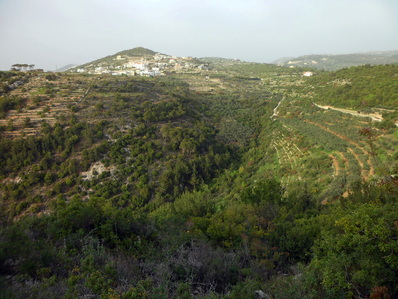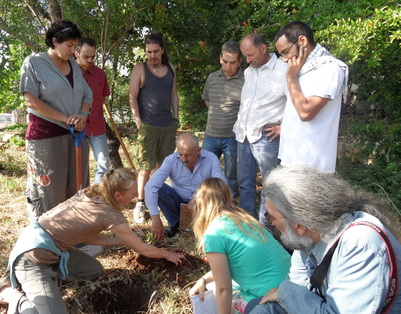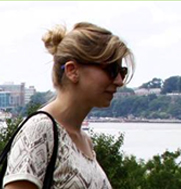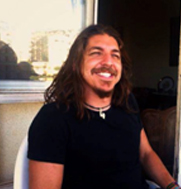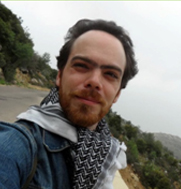Permaculture Design Certificate | April 24-May 8, 2016
|
Who Should Participate?
|
• Agricultural engineers and students,
• Alternative energy consultants and engineers, • Architects, builders and landscape designers, |
• Farmers and people interested in growing their own food or crops,
• Educators and coordinators/planners of eco-activities, • Environmental consultants, activists and project owners, |
... and anyone seeking to be an agent of positive change in the way they live, eat, grow and work together
Program
|
I. Introduction
• Ethics and principles of permaculture • Global/local issues II. Ecological Concepts • Elements of an ecosystem • Natural cycles and interactions • Human impact • Agriculture and forestry systems |
III. Sustainable Resource Management
• Soil conservation and regeneration • Water harvesting • Energy conservation and waste reduction • Plant growth and fertility • Natural pest control strategies IV. Social Framework • Community building tools |
V. Permaculture Site Design
• Site survey (climate, plant and animal species) • Design development and evolution VI. Graduation and Next Steps |
The PDC will give you the chance to:
• Observe patterns in nature and apply what you learn through guiding principles
• Expand your curiosity about and connection with the natural world
• Deepen your understanding of the interconnectedness of natural elements (climate, flora, fauna, people, soil, water, landscape)
• Use permaculture ethics, principles and design tools to create sustainable systems
• Understand the importance of conserving soils and water, and learn techniques for doing so
• Start using permaculture in your own life, towards creating a more sustainable lifestyle
• Understand how to apply permaculture design to both land-based and non-land-based systems
• Observe patterns in nature and apply what you learn through guiding principles
• Expand your curiosity about and connection with the natural world
• Deepen your understanding of the interconnectedness of natural elements (climate, flora, fauna, people, soil, water, landscape)
• Use permaculture ethics, principles and design tools to create sustainable systems
• Understand the importance of conserving soils and water, and learn techniques for doing so
• Start using permaculture in your own life, towards creating a more sustainable lifestyle
• Understand how to apply permaculture design to both land-based and non-land-based systems
Meet the Instructors
|
Klaudia van Gool (United Kingdom)
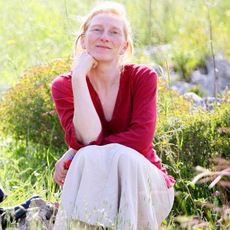
Klaudia is a teacher, trainer and environmental consultant. She has taught over 18 permaculture design courses, as well as introductory and specialist courses. She is passionate about developing people's connection with plants and the wider natural world. She is also increasingly interested in the "People care" aspect of permaculture: How to design a more permanent, regenerative culture to help individuals become motivated for environmental action. Klaudia holds a degree in Environmental Science and completed the Sustainable Land Use and Permaculture Design Certificate at Ragmans Lane Farm with leading UK permaculture advocate Patrick Whitefield in 2006, then earned her Diploma in Applied Permaculture Design in January 2009. Klaudia also taught the first PDC in Lebanon in 2014.
klaudia.co.uk |
Betty Khoury (Lebanon - Egypt)
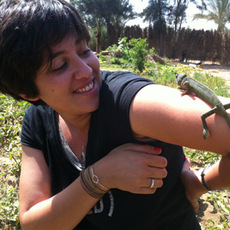
Betty is an outdoor environmental educator and permaculturist. With a background in populations and ecosystems biology she develops new material and activities for students of all ages, embracing the natural world as a continuous learning opportunity and a means to excite their curiosity. Prior to co-founding the Dayma social enterprise in 2011, she studied biology in France and served as a UN volunteer to the regional UNDP Med-WetCoast project in Lebanon, as well as junior expert for the EU SMAP III Technical Assistance project in Egypt. Her earlier work focused on wetlands conservation and integrated coastal zone management; however, she found greater personal and professional satisfaction in environmental and outdoor education. Betty also co-taught the first PDC in Lebanon in 2015.
http://dayma.org/ |
Testimonials from Participants in the First PDC (2014)
|
"I joined the Permaculture Design Certificate in the aim of enriching my urban planning practice and ecological landscape understanding. The course has enabled me to deepen my understanding of ecological systems and to strengthen a layer-based approach to site design, planning and management. By addressing several methods of gardening, planting, crop rotation, soil testing and site survey, I feel I have acquired some practical knowledge that would allow me to follow projects from conception to realization. It has been a very enriching to experience the design process with non-designers. I really enjoyed learning about the human related aspect that Permaculture advocates as well. Spending two weeks in a rural village has contributed to my understanding of the Lebanese landscape heritage, and I hope that such initiatives would continue sustaining the stories of rural life before they are forever lost."
Sarah Lily Yassine |
|
"[...] We discovered a little more of ourselves during these two weeks living as a community in the village of Saidoun. We (re)discovered what it means to take care of people and nature. I personally reconnected with my true nature, rediscovered the true culture of Lebanon, and came out of this experience inspired to contribute to the (r)evolution of culture in Lebanon. From a culture that's based on the so called "human nature" of individualism and competition, to a culture that is aware of its social construct. That is, a culture that becomes conscious that it is the result of our human ideas and actions, and that can therefore be challenged, reconstructed and transformed by every single one of us. [...] Thank you Soils. Thank you Saidoun for the awakening."
Joey El-Khoury |
|
"The Permaculture Design Certificate (PDC) course really clarified the philosophy of permaculture for me and helped me both visualize and experience it in the big picture as well as in the field. But the course was about more than just acquiring valuable knowledge and tools for sustainable practices: It was about connecting with nature, with people and with my self and the things that really matter in my life. I feel more confident about where I am heading now and I am grateful for discovering like-minded friends whose continued support I can always count on."
Alexis Baghdadi |

